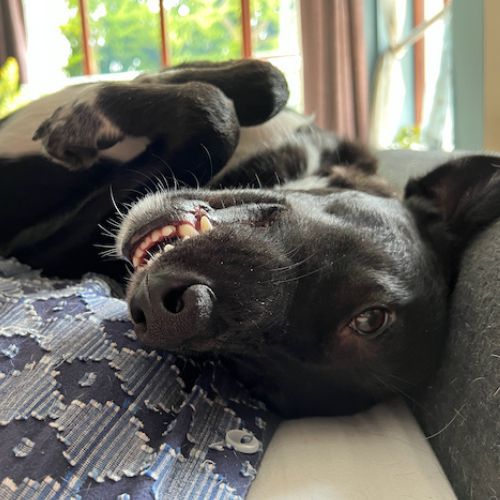
Jane and Hormoz, with help from some of the Result pet family of Dusty, Sienna and Sidney, reflect on why many of us are making ourselves ill and stressed by forgetting to let ourselves rest.
Jane:
Actually, I don’t want to write this blog. I am going to lie down instead and talk to my cat. Bye!
That was half-serious. How often could you say something like that to yourself then actually act on it?
If you can answer ‘Often’, congratulations, as you are in a precious minority.
Why do we feel so obliged to squeeze more and more activity into our time? What are we afraid of? And what impact is this having?
Claudia Hammond has written a fascinating book called The Art of Rest. It draws on large-scale research about the most popular and effective ways to rest. Lack of rest has serious consequences. 13% of work injuries in the US can be attributed to fatigue and at least half a million people in the UK are suffering from work-related stress.
Why would we plough on when we are tired? Have you ever noticed how quickly you can get a task done when you feel fresh, but how endless and grinding it seems when are you are tired? Hammond outlines how tiredness affects our cognitive abilities, leads to memory lapses, more frequent misunderstandings and impaired judgement.
This is a topic which regularly comes up in coaching sessions. A typical comment would be, ‘I can’t let go.’ It often speaks to a worrying disconnect from our physical self. Aches, pains, hunger, dehydration, low mood and general ennui can set in, yet we ignore it all and keep going. You would probably not keep driving your car if it was making terrible noises and not running well. Perhaps we need to treat ourselves similarly?
If you are intrigued by the top ten ways to rest – here they are in reverse order:
- mindfulness
- watching tv (yes!!)
- daydreaming
- having a nice hot bath
- a good walk
- doing nothing in particular
- listening to music (I do this as a deaf person in my head)
- being alone when you want to
- spending time in nature
- reading.
If any of those items felt particularly alluring, why not treat yourself to a break and try them?

Hormoz:
I always thought I was good at it. That is: relaxing, socialising, doing enough exercise and eating the right things. Being able to lose myself in my passions with music and the arts. All of these activities to rest. And then I had a breakdown. What? Where did that come from?
Jane’s list of things we should all do to relax are true to ensure we unwind. She talks about some of the aspects that tiredness has on cognitive responses et. In my case, it was no different, contributing to a breakdown, following sleeplessness, getting consumed by anxiety then developing into full blown depression.
And yet, I wasn’t a depressive person, outwardly getting on with it and having fun. It was the time (probably a couple of years later) after my diagnosis of bi-polar and the examination of my life, that I started learning much more about being able to truly relax. This may sound odd but, and because I got to really know myself, decided not to live my life by other people’s rules, and properly listened to ME, I felt much better all round. My feeling of well-being was considerably enhanced because I got to a place where I felt that I was balancing my drive for work success, with a much more authentic me knowing how to relax.
I realised that part of the reason for my seemingly resting and never really being able to manage it was that my self-talk was unkind and negative within me for too long. I could never allow my mind to rest even though my body thought it was.
In The Compassionate Mind, Professor Paul Gilbert ‘explores how our minds have developed to be highly sensitive and quick to react to perceived threats and how this fast-acting threat-response system can be a source of anxiety, depression and aggression. He describes how studies have also shown that developing kindness and compassion for self and others can help in calming down the threat system … we can learn how to soothe ourselves.’ (Hachette UK).
We have been focusing on Professor Gilbert’s ideas in workshops, highlighting how interactions between the different parts of our brains and why it is important to balance our ‘drive’ and ‘soothing’ sides, enabling us being most creative and as a result happier.
Much of our work has a focus on well-being. Talk to us more about being happier!

We are what we do and we love what we do.